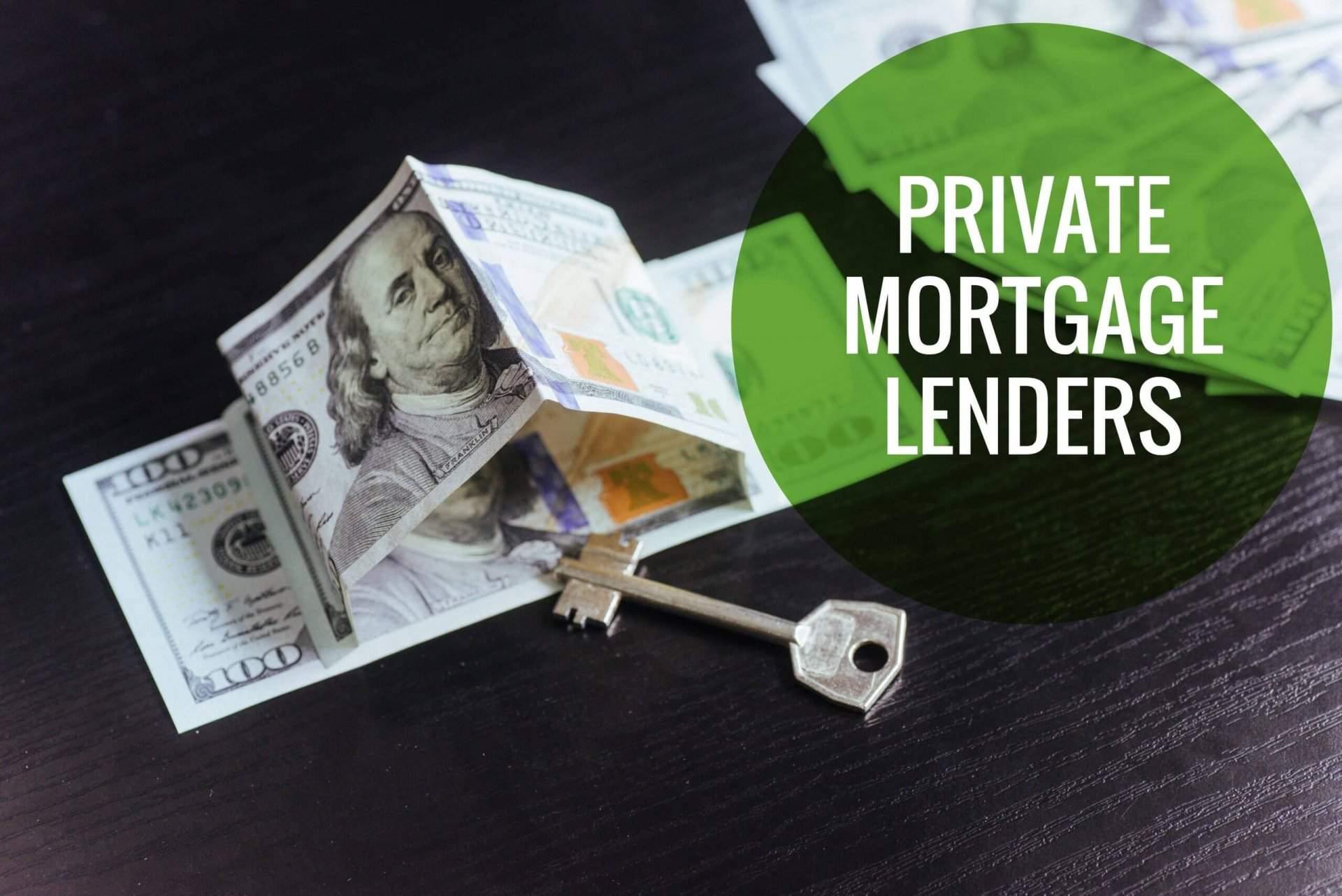Exploring Mortgage Lending: Essential Details for Making Informed Choices
In today's real estate market, comprehending mortgage lending is crucial for potential purchasers. Different mortgage types, such as fixed-rate and adjustable-rate, offer distinctive benefits and obstacles. Rate of interest, lending application processes, and closing expenses also play significant duties fit the home-buying experience. With so many variables to assess, traversing this landscape can seem intimidating. There are means to streamline the process and make notified choices.
Recognizing Various Sorts Of Home Mortgages
What are the various sorts of mortgages available to homebuyers? Buyers can select from several mortgage alternatives to suit their financial circumstances and objectives. Fixed-rate home loans are preferred for their security, supplying a constant rate of interest and month-to-month settlement throughout the financing term. On the other hand, adjustable-rate home mortgages (ARMs) begin with a lower passion price that may change after an initial duration, possibly enhancing total prices. Another option is the FHA lending, made for low-to-moderate-income customers, which calls for a lower down payment and has much more lenient credit history demands. VA fundings, readily available to professionals and active armed forces members, offer positive terms without deposit and affordable prices. In addition, USDA financings sustain rural property buyers with low-to-moderate incomes, providing 100% financing in assigned areas. Understanding these mortgage kinds makes it possible for property buyers to make educated decisions based on their special monetary circumstances.
The Importance of Rates Of Interest
Rate of interest play a crucial function in the mortgage lending landscape, exceptionally affecting the price of homeownership. A lower rate of interest can significantly reduce month-to-month mortgage payments, making it easier for customers to manage their funds. Conversely, greater prices can bring about boosted costs over the life of the funding, potentially pushing homeownership out of reach for lots of individuals.Additionally, interest prices are frequently connected to broader financial indicators, such as inflation and work prices, which can change based on market problems. This partnership implies that prospective homeowners need to stay notified concerning current rate patterns to make enlightened decisions.Moreover, the sort of mortgage chosen can additionally influence how passion rates are applied, with fixed-rate home loans supplying stability and variable-rate mortgages presenting possible variability. Comprehending these characteristics is important for debtors looking to browse the intricacies of mortgage lending effectively.
The Mortgage Application Process
Steering through the mortgage application process can seem daunting for several possible house owners. The trip normally starts with collecting essential documents, such as earnings declarations, income tax return, and debt background. Lenders analyze this information to review the candidate's economic security and creditworthiness.Once the documents is gathered, individuals send an official application, where they detail personal and monetary info. This stage is essential, as it enables lending institutions to determine funding eligibility and terms. Following the entry, underwriting happens, throughout which lenders conduct an extensive evaluation of the application and sustaining documents.After underwriting, the lender may request added information or clarification. If accepted, the candidate receives a lending deal, which outlines the mortgage terms. Upon approval, shutting procedures begin, leading to the finalization of the financing and the procurement of the residential property. Understanding this procedure can equip potential home owners to navigate it with better confidence.
Secret Terms Every Homebuyer Need To Know
Navigating the globe of mortgage lending requires knowledge with different vital terms that can considerably influence the homebuying experience. Understanding these terms assists buyers browse their alternatives and make educated decisions.One essential term is "primary," which describes the preliminary quantity borrowed. Closely associated is "interest," the cost billed by lenders for borrowing cash, typically shared as a yearly percentage rate (APR) "Escrow" is one more substantial concept, where funds are held by a 3rd party to cover property taxes and insurance.Buyers ought to additionally understand "deposit," the ahead of time amount paid towards the home acquisition, and "equity," the distinction in between the home's market worth and the remaining mortgage balance. "pre-approval" represents that a loan provider has assessed a buyer's economic circumstance and figured out exactly how much they can borrow, simplifying the acquiring procedure. Familiarity with these terms empowers property buyers in their journey.
Tips for Improving Your Credit Report
Improving one's credit rating is crucial for safeguarding desirable mortgage terms. Trick actions consist of paying expenses in a timely manner, minimizing credit report usage, and examining debt reports routinely - Private Mortgage Lenders Savannah GA. These steps can substantially improve an individual's economic account and boost their chances of acquiring a mortgage

Pay Bills Promptly
Paying bills in a timely manner stands as one of the most reliable techniques for improving a credit report. Prompt payments show financial obligation and integrity to lenders, greatly influencing credit that site history analyses. Late payments can result in unfavorable marks on credit history records, which might continue to be for several years, negatively influencing borrowing abilities. Establishing a constant timetable for bill settlements can aid maintain punctuality; utilizing pointers or automatic repayments is a reliable approach. Individuals ought to prioritize vital expenses, such as debt cards, energies, and home mortgages, to guard their credit reliability. Regularly checking credit records can additionally assist catch any inconsistencies or missed payments, allowing for timely action. Ultimately, regular expense payment is vital for cultivating a strong credit score profile.
Reduce Credit Rating Application
Lowering credit application is a crucial action in enhancing one's credit rating. Credit score usage describes the ratio of bank card equilibriums to their limitations, and it considerably impacts credit rating. Specialists advise preserving an utilization price listed below 30%, ideally around 10%. To attain this, individuals can pay for existing balances or raise credit line, provided they do not increase investing. Furthermore, people should stay clear of shutting old charge account, as this can accidentally raise usage proportions by decreasing overall readily available credit rating. Consistently monitoring investing habits and making constant repayments can additionally aid in taking care of debt use properly. By applying these approaches, people can improve their credit report and improve their eligibility for beneficial mortgage lending alternatives.
Inspect Credit History Information On A Regular Basis
While lots of may forget their credit scores reports, regularly examining these papers is necessary for maintaining a healthy credit report rating. Credit reports consist of critical details about an individual's credit scores history, consisting of payment documents, exceptional debts, and credit report queries. By reviewing these records, consumers can identify any kind of errors or deceitful tasks, which can negatively influence their scores. It is advisable to examine debt records at the very least annually, as this enables individuals to correct mistakes and take aggressive steps to enhance their creditworthiness. Furthermore, keeping track of credit rating records can provide understanding right into factors impacting the rating, making it possible for individuals to make educated financial choices. Ultimately, regular watchfulness over credit report reports promotes monetary wellness and enhances the probability of safeguarding beneficial mortgage lending terms.
Browsing Closing Expenses and Fees
Recognizing closing expenses and charges is essential for anybody going into the mortgage process. Each component, from loan provider fees to third-party fees, can considerably impact the total cost of securing a financing. By comparing these expenses and negotiating when feasible, borrowers can better handle their economic dedications.
Understanding Closing Price Parts
Taking care of the complexities of shutting costs can be daunting for property buyers. Closing expenses are made up of numerous parts, generally including finance origination fees, appraisal charges, title insurance coverage, and evaluation costs. These costs differ by lender and can change based on the home location and lending type. Additionally, homeowners might come across prepaid prices like residential property tax obligations and house owners insurance coverage that are collected at closing (Private Mortgage Lenders Savannah GA). It is crucial for purchasers to recognize these components to properly estimate the complete amount required throughout the purchase. By breaking down each element, try here buyers can make informed economic decisions, ensuring they are well-prepared for the closing procedure and reducing any kind of surprises that may emerge at the last stages of safeguarding their mortgage
Comparing Loan Provider Costs
When assessing mortgage options, consumers should meticulously compare loan provider charges to guarantee they are making an educated choice. Lender charges can substantially impact the total cost of a home loan, consisting of application costs, lending origination fees, and underwriting charges. Each loan provider might have various frameworks and amounts for these costs, which can lead to substantial browse around this site differences in complete closing expenses. It is essential for debtors to ask for a Financing Estimate from multiple lenders, as this file details all connected costs in a standardized format. By analyzing these quotes, borrowers can recognize which lending institution provides the most affordable terms. Ultimately, a complete contrast of loan provider charges will certainly assist customers select the very best mortgage option that aligns with their financial goals.
Negotiating Closing Prices
Customers commonly ignore the prospective to negotiate closing expenses, which can further affect the price of a home loan. Closing costs commonly include numerous charges such as evaluation, title insurance coverage, and attorney charges, which can accumulate substantially. Comprehending these prices is important, as they can differ in between loan providers. By getting comprehensive price quotes, debtors can identify areas for arrangement. It is recommended to review fees directly with the lending institution, as some charges may be versatile. In addition, customers can compare offers from several lending institutions to take advantage of far better terms. Engaging a property agent or a home loan broker can better enhance the negotiation process, ensuring that debtors protect one of the most beneficial closing expenses and general mortgage terms.

Regularly Asked Questions
What Files Are Needed for a Home Mortgage Application?
The present concern addresses the essential documents for a home loan application. Generally, candidates must offer identification, earnings confirmation, credit rating, asset statements, and information pertaining to the residential property to ensure a thorough analysis by lending institutions.
Just how Does My Employment Background Affect Mortgage Approval?
Work history substantially influences mortgage approval, as lending institutions analyze task stability and revenue consistency. A strong, constant work document improves creditworthiness, while frequent job changes might raise problems regarding reliability and monetary stability.
Can I Obtain a Mortgage With Pupil Loans?
The person's capability to secure a home mortgage with trainee loans relies on their overall debt-to-income ratio and credit rating. Lenders examine these factors, establishing whether the applicant can handle added financial commitments responsibly.
What Is the Distinction In Between Pre-Qualification and Pre-Approval?
The difference in between pre-qualification and pre-approval depend on their deepness. Private Mortgage Lenders Savannah GA. Pre-qualification offers a general price quote of borrowing potential based upon self-reported details, while pre-approval involves a thorough monetary analysis and credit rating check by the lender

For how long Does It Take to Shut on a Mortgage?
The time needed to shut on a home mortgage generally ranges from 30 to 45 days. Elements such as lending institution performance, borrower documentation completeness, and residential property assessment can influence this timeline substantially, triggering variants in the closing procedure.